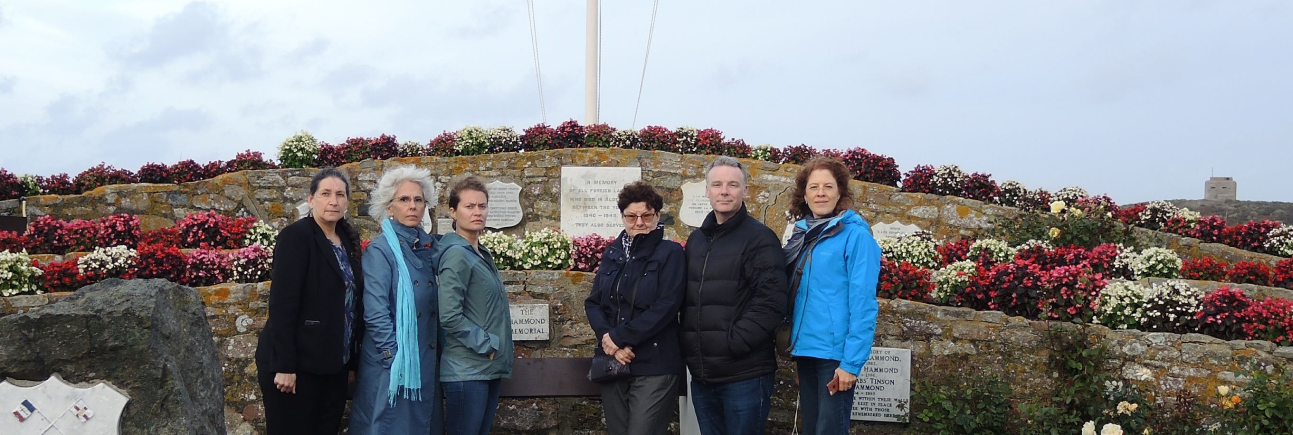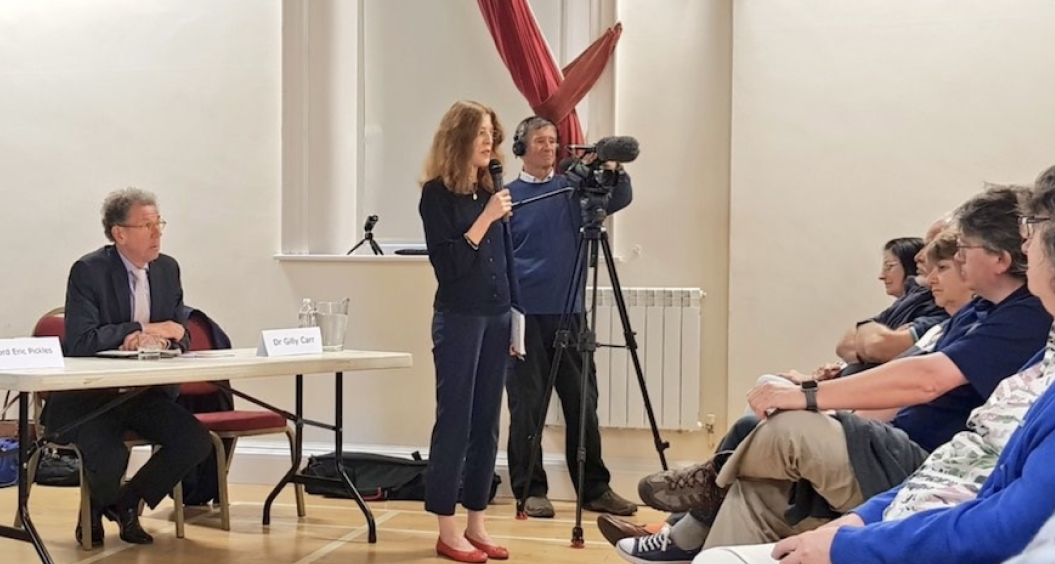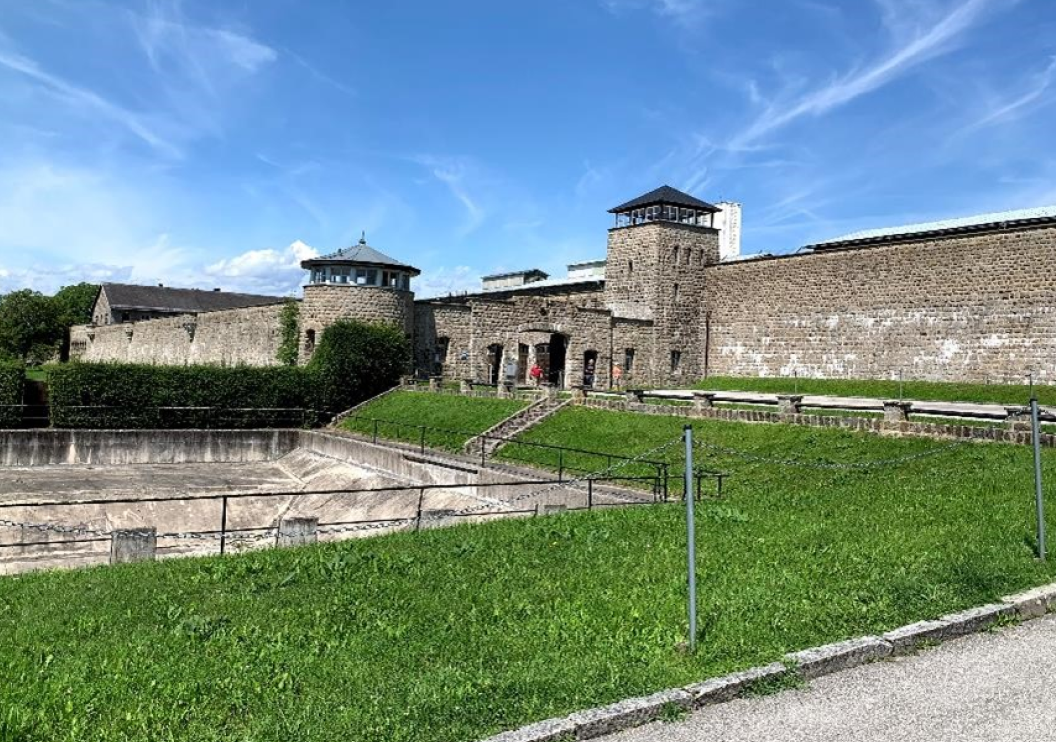


A year in review: Safeguarding Sites
by Zoltán Tóth-Heinemann
In a year upended by a pandemic, how should one proceed with a project for which site visits, meetings and discussions with local stakeholders are critical? With most Holocaust sites in Europe under lockdown and field trips made impossible, the team members of the “Safeguarding Sites: the IHRA Charter for Best Practice” IHRA project had to grapple with this challenge throughout 2020.
Originally planned for a period of five years, this project aims to create guidelines and an understanding of best practice for safeguarding authentic Holocaust and Roma genocide sites that face a wide variety of threats, both natural and man-made, in order to preserve the record and the evidence of the history of the Holocaust.
Reviewing the project’s early activities
In September 2019, members of the team were able to visit the project’s first site, Alderney, one of the Channel Islands. This visit allowed the team to assess the existing risks facing the former Nazi camps on the island and to discuss steps that could be taken to safeguard the record. These efforts, which continued throughout 2020, resulted in a five-year plan for Alderney. The plan envisages a digital strategy, which will operate parallel to activities, which will safeguard and strengthen the remnants of the camps, present accurate information about them, and partner with the local community. This approach will enable them to share their narrative of the history of the island during the Nazi occupation, as well as take administrative steps to legally protect the heritage site.
The team aims to achieve its objectives through consultations and partnerships, not only with memorials and local stakeholders, but also with the IHRA’s Permanent International Partners and heritage organizations. As part of the effort to strengthen such a partnership, the project Chair participated in a discussion at the Council of Europe in March 2020 on ways of training youth leaders and encouraging young people in general to take an interest in and become engaged with their Holocaust heritage.
Adjusting to a new normal in 2020
Such activities ground to a halt, however, as it became clear that attending in-person conferences and travelling internationally were no longer possible.
“We have had to move all our activities online since the start of the pandemic. We have also rescheduled our trips and conferences, such as our planned visit to Mauthausen and Gusen in 2020 which was to be followed by a conference in Budapest,” said project Chair, Dr. Gilly Carr. “However, I have been really pleased with the significant progress that we have made. The digital mode of communication has facilitated new ideas and solutions for the sites with which we are working. Our Charter has moved closer to finalization and I look forward to taking the next steps with the team in 2021.”
The project group was able to gather preliminary information in other ways. For example, although visits to sites of Nazi persecution in the vicinity of Berlin and Leipzig had to be canceled, they were replaced with online discussions with representatives of memorials in Buchenwald, Dachau and Sandbostel. Members of the team gained valuable insight from the presentations of Dr. Philipp Neumann-Thein, Dr. Christoph Thonfeld and Andreas Ehresmann about threats such as vandalism, right-wing extremism, disrespect toward the victims, and friction with the surrounding community. Importantly, they also learned ways to mitigate their impact. Team members were cautioned to remain realistic about their expectations for the current use of sites, and about the desire to turn all camp buildings and spaces into memorials.
Addressing Holocaust remembrance’s digital turn
The pandemic’s effects on memorials and commemoration, and the necessity of moving the project’s activities online presented new challenges. In the process of looking for solutions, the project team was often confronted with the ever-re-emerging question of how new technologies – like virtual and augmented reality, or even video games – can be used in Holocaust remembrance. Since beginning the project, the team has learned about several such initiatives and plans, as well as some applications already in use at some sites.
Looking ahead
Once the circumstances allow it, the team plans to continue gathering experience from sites located throughout IHRA Member Countries. The project will engage with five sites over five years. The team is mindful of working with sites which represent a wide spectrum of challenges, and of finding realistic solutions in order to create widely applicable guidelines. We must make careful choices to reflect the diversity in the category, character and geographic location of the sites. In this process, valuable input has already been provided by IHRA experts, including the IHRA’s Honorary Chairman, Prof. Yehuda Bauer.
Sign up to our newsletter to
receive the latest updates
By signing up to the IHRA newsletter, you agree to our Privacy Policy




